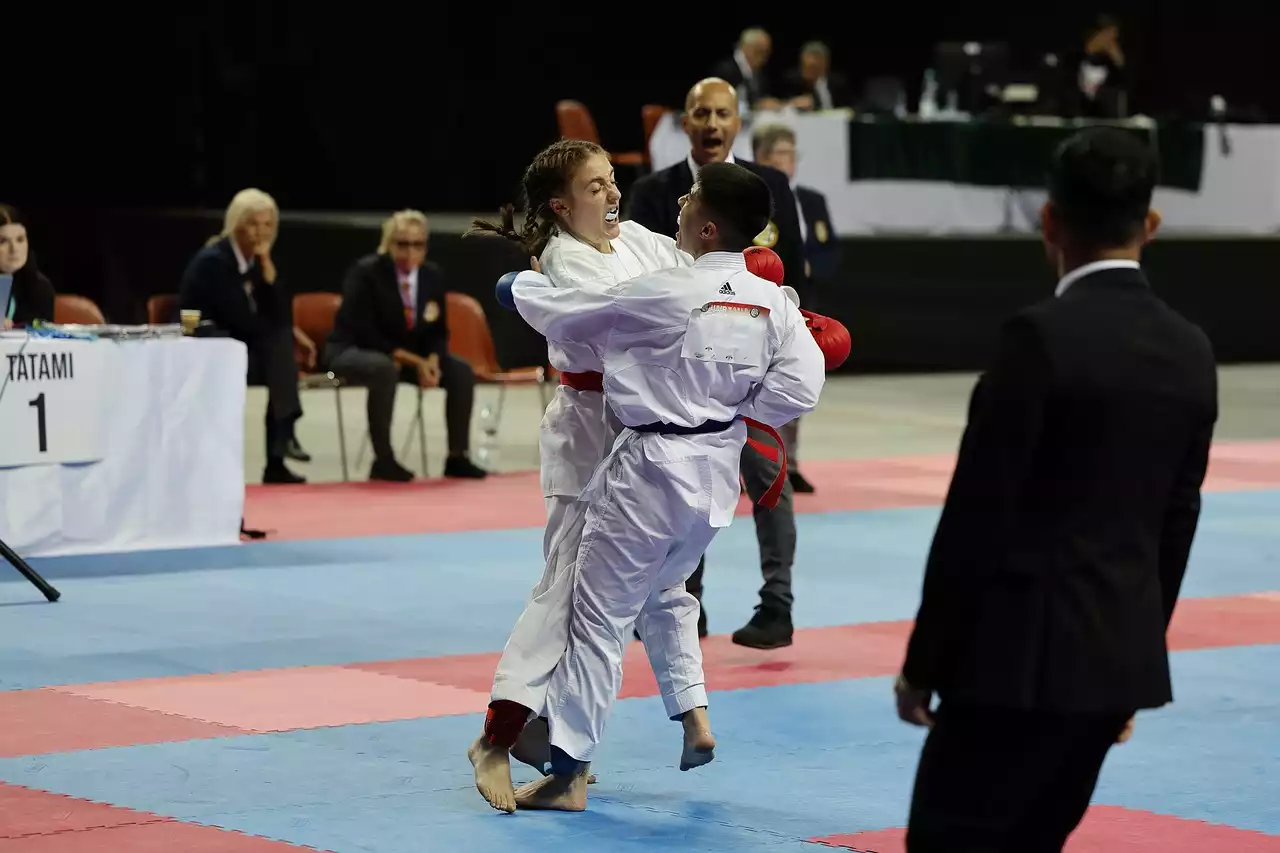Understanding the Basics of Jujitsu
Before we dive into the different types of Jujitsu competitions, let's first understand the basics of Jujitsu. Jujitsu is a Japanese martial art that focuses on grappling techniques, joint locks, and submission holds. It's a highly technical martial art that requires years of practice to master. Jujitsu is often referred to as the "gentle art" because it emphasizes using your opponent's strength and momentum against them, rather than relying on brute force.
Jujitsu is a versatile martial art that can be used in both self-defense situations and in competition. In competition, Jujitsu practitioners face off against each other in a controlled environment, with the goal of submitting their opponent or scoring points.
Jujitsu is often confused with other martial arts, such as Judo and Brazilian Jujitsu. While these martial arts share some similarities, they have distinct differences in their techniques, rules, and competition formats.
Types of Jujitsu Competitions
There are several types of Jujitsu competitions, each with its own rules, scoring systems, and equipment requirements. Let's take a closer look at each type.
Brazilian Jujitsu (BJJ) Competitions
Brazilian Jujitsu (BJJ) has become one of the most popular forms of Jujitsu in recent years. BJJ competitions typically take place on a mat, with two competitors facing off against each other. The goal of BJJ is to submit your opponent by forcing them to tap out, either through a joint lock or a chokehold.
BJJ competitions are divided into weight classes, with competitors weighed before the competition to ensure fairness. Matches are typically timed, with the winner being the competitor with the most points or submissions at the end of the match. Points are awarded for takedowns, sweeps, and submission attempts.
BJJ competitions also have a belt system, with competitors awarded belts based on their skill level. The highest belt in BJJ is the black belt, which can take years of training and competition to achieve.
Japanese Jujitsu Competitions
Japanese Jujitsu competitions are more traditional than BJJ competitions and focus on a broader range of techniques, including strikes and throws. Japanese Jujitsu competitions often take place on a mat or in a ring, with competitors wearing traditional Jujitsu uniforms.
In Japanese Jujitsu competitions, competitors are not divided into weight classes, which means that matches can sometimes be uneven. Matches are typically timed, with the winner being the competitor with the most points or submissions at the end of the match. Points are awarded for throws, strikes, and submissions.
Japanese Jujitsu competitions also have a belt system, with competitors awarded belts based on their skill level.
Grappling and Submission-Only Competitions
Grappling and submission-only competitions have become increasingly popular in recent years. These competitions focus solely on grappling techniques and submission holds, with strikes and throws not allowed.
Grappling and submission-only competitions can take place on a mat or in a ring, with competitors wearing either traditional Jujitsu uniforms or shorts and rash guards. Matches are typically timed, with the winner being the competitor who submits their opponent first.
Grappling and submission-only competitions are often divided into weight classes, with competitors weighed before the competition to ensure fairness.
Jujitsu Competition Rules and Regulations
Each type of Jujitsu competition has its own set of rules and regulations. It's important to familiarize yourself with these rules before competing to ensure that you're competing safely and fairly.
Most Jujitsu competitions have rules around what techniques are allowed and what techniques are not allowed. For example, some competitions may allow strikes and throws, while others may only allow grappling techniques and submission holds.
Competitions also have rules around safety equipment. Most competitions require competitors to wear a mouthguard and protective gear, such as shin guards and headgear.
How to Prepare for a Jujitsu Competition
Preparing for a Jujitsu competition takes time and dedication. Here are some tips to help you prepare:
Train Consistently
To compete in Jujitsu, you need to train consistently. This means attending class regularly and practicing your techniques outside of class.
Focus on Your Weaknesses
Identify your weaknesses and work on improving them. If you struggle with a particular technique, spend extra time practicing it until you feel confident.
Improve Your Conditioning
Jujitsu competitions require a high level of endurance and conditioning. Incorporate cardio and strength training into your routine to improve your overall fitness.
Learn the Rules
Familiarize yourself with the rules and regulations of the competition you'll be competing in. This will help you avoid penalties and disqualifications.
Tips for Winning a Jujitsu Competition
Winning a Jujitsu competition takes more than just technical skill. Here are some tips to help you succeed:
Stay Focused
Stay focused during your matches and avoid getting distracted by your opponent or the crowd.
Stay Calm
Jujitsu competitions can be intense, but it's important to stay calm and focused. Don't let your emotions get the best of you.
Be Aggressive
Don't be afraid to be aggressive during your matches. Take the initiative and go after your opponent.
Be Patient
Jujitsu matches can be long and endurance-heavy. Be patient and wait for the right opportunity to present itself.
The Future of Jujitsu Competitions
Jujitsu competitions continue to evolve, with new formats and rules being introduced all the time. As the sport becomes more popular, it's likely that we'll see even more innovation in the future.
One trend that's already emerging is the integration of technology into Jujitsu competitions. Some competitions are experimenting with using sensors and cameras to track competitors' movements and analyze their techniques.
Another trend is the increasing popularity of women's Jujitsu competitions. As more women take up the sport, we're likely to see more competitions dedicated solely to female competitors.
No matter how Jujitsu competitions evolve in the future, one thing is certain: this fascinating martial art will continue to captivate and inspire practitioners and spectators alike.










